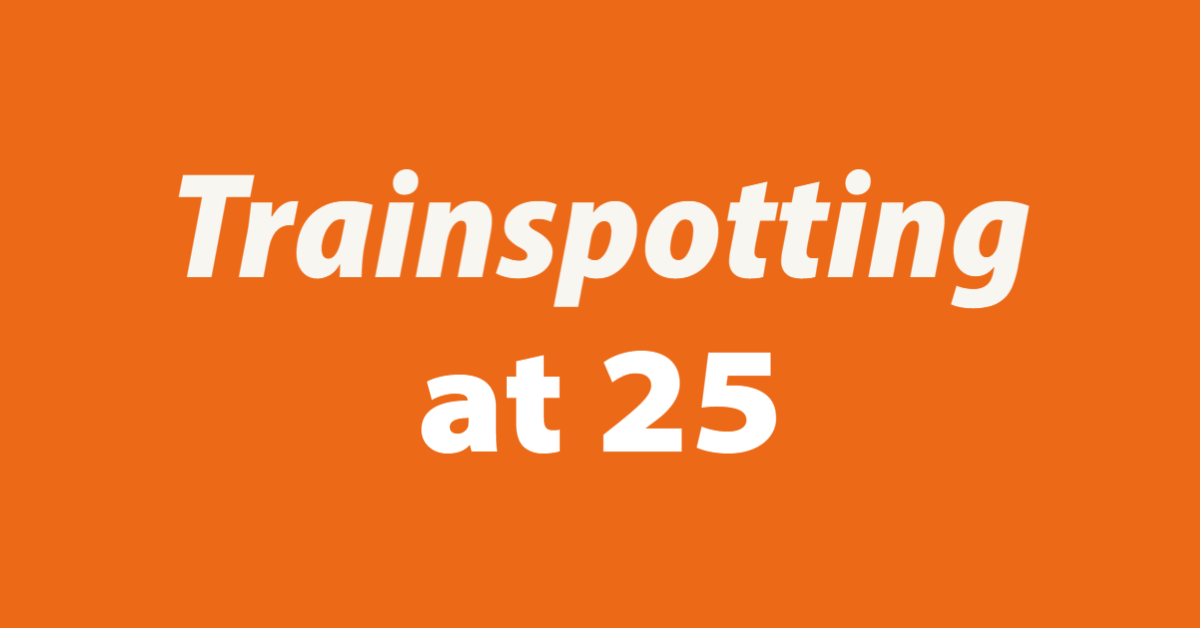When it was released stateside in July 1996, “Trainspotting” producers wanted to market it as a British “Pulp Fiction.” Trailers played up the action and the edgy tone while a classic rock staple blared over the top. The movie is crazy, but it’s a completely different beast than “Pulp Fiction,” and it was never trying to be a copy. Sure, the dialogue is punchy, but the characters in “Trainspotting” are trying to say something about their world and themselves, and director Danny Boyle’s movie is less interested in structure and references than it is with painting a portrait of British society in the ’90s.
The film follows a group of impoverished young people in Scotland during the mid-1990s, most of whom are addicted to heroin (among other things). This story still feels hard-hitting, especially in the modern age of the opioid epidemic. Interestingly, while the movie seems to have a dark vision of modern Britain, it finds a way to laugh through it. The direction sells the balance, with a hyperactive style that communicates drug use far better than anything else I’ve seen. Things will get crazy, but you always are able to put together what’s on screen and why. Boyle never resorts to throwing up nonsense just to make things “trippy;” he wants you to feel and think the way the characters do.
This is a coming-of-age film about characters too old to be in teen movies but still acting like teenagers. Their growing up is distorted by the complications of life in the modern age: love, drugs, isolation and Scottish accents. People around you may be burning out and crashing, but you can all wake up the next day hungry and energized; young people feel both invincible and vulnerable all at once. A lot of “Trainspotting” is quintessentially Scottish, but I found this to be applicable to life regardless of when or where you live. The ending is strange, with multiple climaxes and a final scene that’s a little unsatisfying, but it was an effective exploration of addiction all the way through.
The movie is funny more than not, and oddly inoffensive after all these years. It has a hooligan energy that lets the more immature parts slide, and it can effortlessly slide in and out of a more serious tone when you least suspect it. The screenplay is clearly angling to capture some of that
“Pulp Fiction” magic (and succeeds unlike most), but the pop culture references are traded for angst, silliness, and more black comedy.
The cast is great, particularly Ewan McGregor in his breakout role as Renton. He isn’t much of a hero and he’s not likable, but his arc is a realistic mixture of growth and constant mistakes — the kind that protagonists don’t usually get to make in movies like this. We see his lowest and highest points, and we see the other characters at a distance through his eyes. We see his desires and his drug-addled fears. He’s the perfect center for a story like this.
We even hear Renton’s thoughts on ’90s British culture, from music and fashion (both are ripped straight from the Britpop/house scenes) to relationships. They all start speeding up around him. Those aesthetics and songs are great, grounding it in that time very effectively. Even if the movie is trying its best to look as grungy as possible, there’s clearly something about this period that keeps people coming back. “Trainspotting” would have won fans in America, but it failed to fully connect with audiences the way it had in Britain, where it’s become part of the great cinematic canon. As it continues to stand the test of time, its legion of international fans will only continue to grow, and I’m glad to be counted among them.
Trainspotting is currently streaming on Paramount+ and PlutoTV, and is available to rent on most major platforms.

